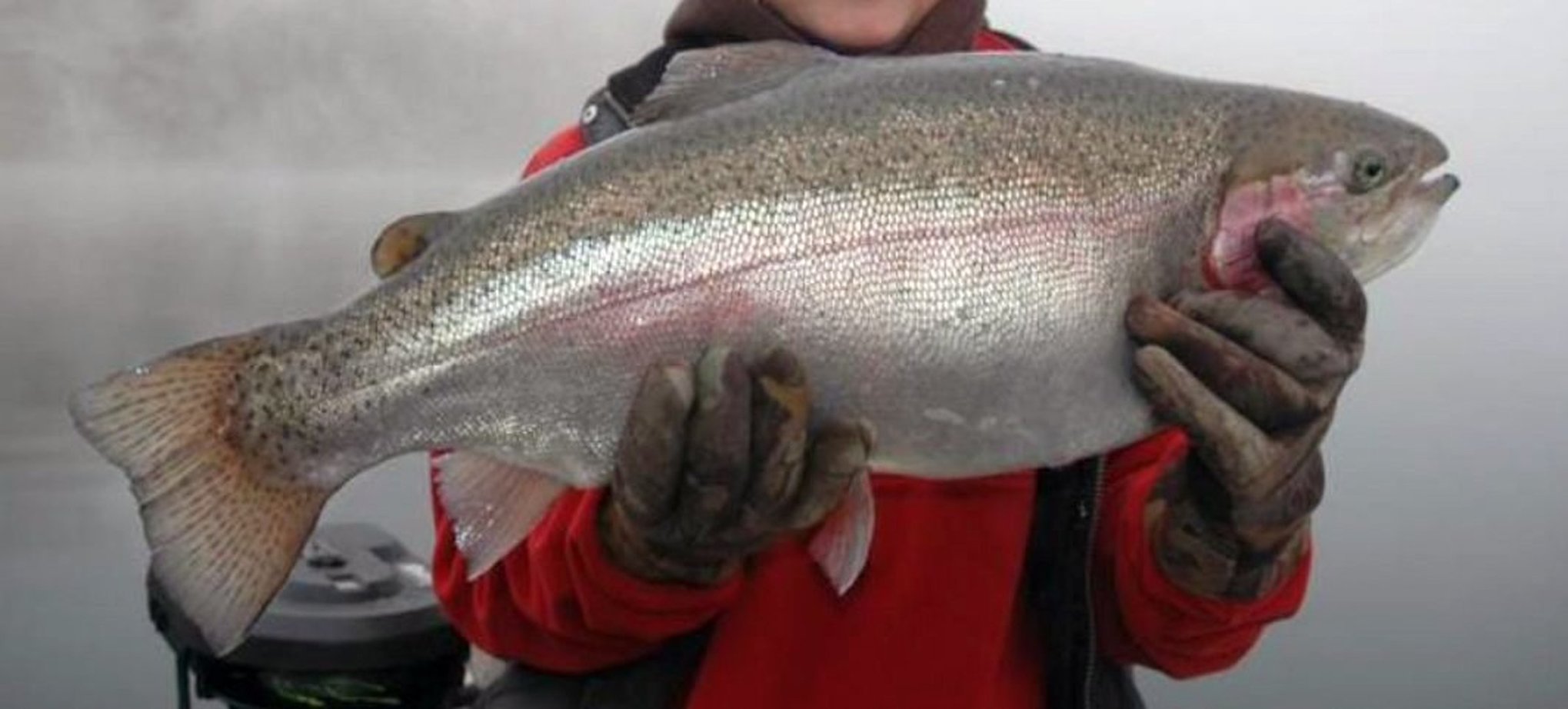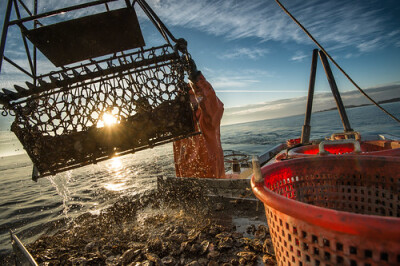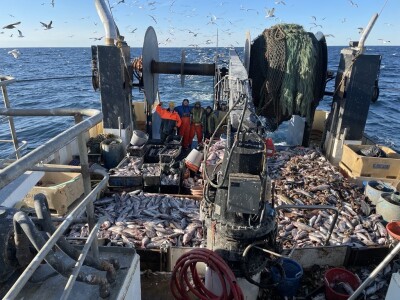Cooke Aquaculture is in the process of pivoting from raising Atlantic salmon to native Pacific steelhead at its four Puget Sound net pens after the fallout of a catastrophic pen collapse in 2017.
The Washington Department of Fish and Wildlife approved the species switch to all-female, sterile steelhead earlier this year. But now the company is looking to the Department of Ecology to approve its updated water quality permits, which includes a public comment period ending Oct. 26.
Department officials have determined that switching species would not change the pens’ potential effects on water quality, but the agency is nonetheless strengthening water quality regulations in the draft permits. Additional requirements under the draft include clarification that any fish reared in Cooke’s net pens are prohibited from release; new protocols for notifying state agencies of events that could potentially lead to fish escape; increased monitoring of potential fish escapes during stocking and harvesting; and new rules for fish feed consumption reports, net maintenance and reducing waste from fish feed.
An online hearing Oct. 14 will give the public and industry stakeholders an opportunity to learn about and comment on the draft revised permits. All documents and hearing information can be found online, and comments can be submitted online or via mail through Oct. 26.
The switch to native steelhead potentially allows Cooke Aquaculture to keep operating pens in the region. In 2018, the state Legislature approved a ban on non-native net pen fish farming that goes into effect in 2022.
“In 2018 the Legislature determined that they preferred the farming of native fish. Since we have always strived to be a good regional partner, steelhead were chosen as the native fish suitable for the Puget Sound and for customer markets,” said Joel Richardson, vice president of public relations for Cooke, in a release.
The Canadian company also owns Seattle-based Icicle Seafoods, which merged with Ocean Beauty Seafoods' wild salmon and Gulf of Alaska groundfish operations to form OBI Seafoods in May.
Cooke Aquaculture’s aquatic lands leases with the state also expire in 2022, and the company will need to renew those leases with the state to continue farming fish. Earlier this year, Washington-based Wild Fish Conservancy filed applications to lease the expiring Cooke sites with the goal of reopening them for public use and eliminating open-water net pens from the region.
“For over three decades, these four sites located in Washington’s public waters and the traditional areas of several Tribal Nations have been leased to private industry and used for commercial marine net pen finfish aquaculture,” reads a letter from Wild Fish Conservancy Executive Director Kurt Beardslee to Franz. “Over this time, we have seen the well-documented risks inherent to open-water net pens materialize, endangering the health of Washington’s waters, which support our culture, economy, wild salmon, and orcas.”
The organization’s Our Sound, Our Salmon campaign aims to block the extension, renewal, or reissue of leases for commercial open water net pen aquaculture in Puget Sound.
Comments period open through Oct. 26, 2020:
Online form
By mail:
Laurie Niewolny, Water Quality Program
Washington State Department of Ecology
P.O. Box 47600, Olympia, WA 98504







